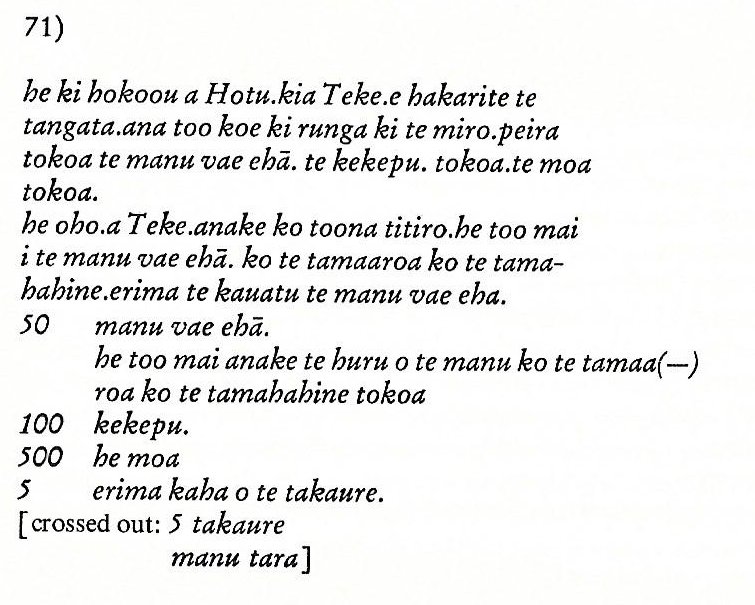
| he ki
hokoou a Teke.kia Oti.ka oho ki roto |
Then Teke said to Oti, 'Go to the sugarcane
plantation [ka oho ki roto ki te toa] and
carefully break off [ka hahati] pieces of
cane. Not one variety shall be left (i.e., shall be
omitted) when the pieces of sugarcane are taken
along.' |
| ki te
toa ka hahati tahi.te mee o to ea eta(-) |
| hi.koia
ko pupura ana
too.mai.he oho. |
|
Pura. To
turn white; glow, brilliance; he-pura te mata,
the eyes twinkle (said of someone who looks at
something with great interest). Purapura,
descendent; koau he purapura o Miru, I am a
descendent of the Miru tribe. Pupura, the
part of the sugarcane or of the ti plant
which is cut off and planted again: pupura tôa,
pupura ti. Vanaga. |
| a Teke.a
Oti.toraua titiro tokoa.he
ōo. ki |
Teke and Oti went with their assistants, entered
into the sugarcane plantation, and broke off pieces
everywhere.
Teke said the names [he nape i te ingoa]
of all the different varieties of sugarcane. |
| roto ki
te toa.he hahati tahi.he nape i te ingoa o |
| te toa.e
Teke. |
|
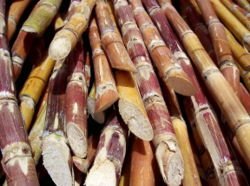 |
|
E:70 |
|
etahi te piere
te amonga o te toa.he
ki a Teke. |
There were a thousand loads [te amonga] of
sugarcane.
Teke said to Oti [oti], 'Bring [ka mau]
(that) on board the canoe!'
The men picked up [he mau] the sugarcane,
came on board the canoe, and left it there.
The men returned (to the other things) [ki te
me'e] and took these too. |
| kia oti
ka mau ki runga ki te miro.he mau te |
|
tangata.i te toā.he tuu
he hakarere i runga i te |
| miro.he
hoki mai te tangata.ki te mee |
| he too
tokou. |
|
The definite article te could have indicated
a time of standstill (solstice) in contrast to the
active definite article he. June 17 (*88) +
*6 = *95. Betelgeuze (168) + 6 = 175 (Canopus).
Amo. Amo. To carry on one's shoulders:
O Yetú i-amo-ai te tatauró ki ruga ki-te maúga
Kalvario. Jesus carried his cross up to the
Calvary. Amoga, bundle; to tie in a bundle:
he-amoga i te hukahuka, to tie a bundle of
wood. Vanaga. 1. A yoke, to carry; amoga,
burden, load. 2. To bend, to beat a path.
Churchill. Âmo. 1. To clean, to clean
oneself: he-âmo i te umu, to clean the earth
oven; ka-âmo te hare, ka haka-maitaki, clean
the house, make it good; he-âmo i te ariga,
to clean one's face wetting it with one's hand. 2.
Clear; ku-âmo-á te ragi, the sky is clear. 3.
To slip, to slide, to glide (see pei-âmo).
Ámoámo, to lick up, to lap up, to dry; to slap
one's body dry (after swimming or bathing):
he-âmoâmo i te vaihai rima. Vanaga.
Amoamo. 1. To feed, to graze. 2. To spread, to
stretch (used of keete). Churchill.
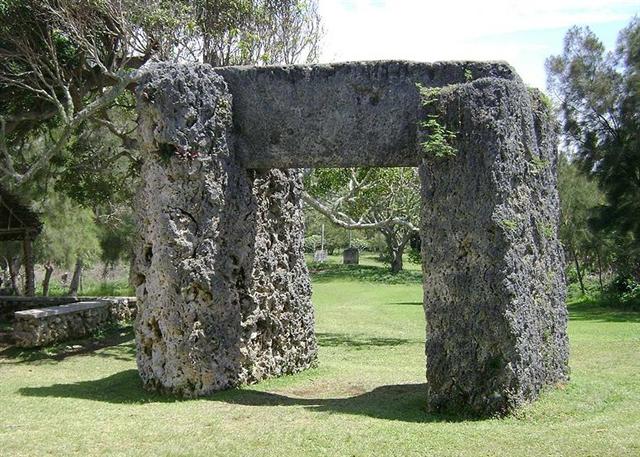
...
During his
coronation year king Taufa'ahau Tupou IV
advanced the theory that the Ha'amonga stones
must have served a greater purpose than the more
obvious function as a gateway. This proved to be the
case when closer investigation revealed a secret
mark on the lintel (= threshold) stone ... On June
21st 1967 at dawn his majesty was present at this
place and it was a thrilling moment when the sun
rose at the exact point indicated by his
interpretation of the lines etched on the great
stone ... |
| he ki
hokoou te ariki a Hotu kia Teke. |
Then King Hotu spoke to Teke, 'Take along the
four-legged animals (manu vae eha), the pigs
(? kekepu), the sea swallows (manu
tara), and the flies (takaure) [te takaure
he]!' King Hotu continued to speak to Teke, 'The thing
[he mee] that you must not forget under any
circumstances are the flies! The flies are creatures
[he mee o rehu a takaure] that must not be
forgotten.
If you forget the flies [ana rehu te takaure i
a koe] the multitude [te piere] of
people will perish [he ngaro]. But when you
bring the flies on land [ana tomo ki runga ki te
kainga te takaure], then there will be a great
number of people (he piere tangata)!' |
| ka too
te manu vae eha.te kekepu. te manu |
| tara.te
takaure.(h)e ki hokoou te ariki a Hotu |
| kia
Teke. te mee mo tae rehu i a koe he taka(-) |
| ure.he
mee o rehu a te takaure. ana rehu te |
| takaure
i a koe.he ngaro te piere tangata. |
| ana tomo
ki runga ki te kainga te takaure ena |
| i a koe
ka aī te mee he piere
tangata. |
|
...From a religious point of
view, the high regard for flies, whose increase or
reduction causes a similar increase or reduction in
the size of the human population, is interesting,
even more so because swarms of flies are often a
real nuisance on Easter Island, something most
visitors have commented on in vivid language. The
explanation seems to be that there is a parallel
relationship between flies and human souls, in this
case, the souls of the unborn. There is a widespread
belief throughout Polynesia that insects are the
embodiment of numinous beings, such as gods or the
spirits of the dead, and this concept extends into
Southeast Asia, where insects are seen as the
embodiment of the soul ...
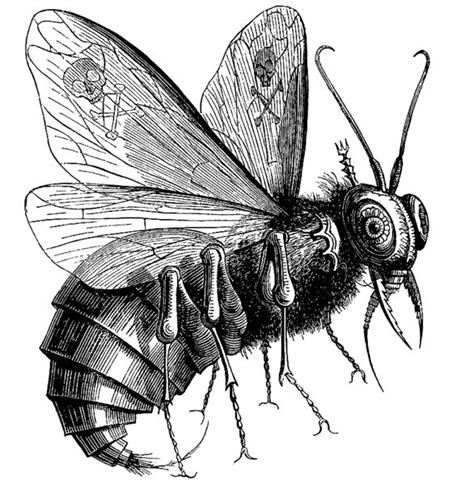 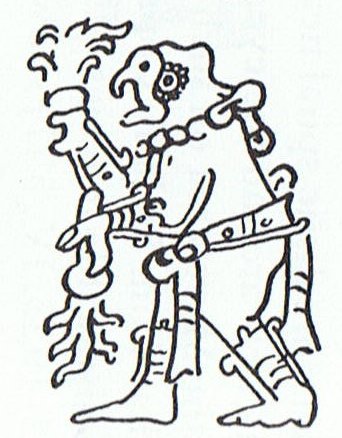 |
|
E:71 → 26000 / 366
... The right ascension
('longiturde') positions of the stars change over
time and the total cycle of the precession has been
estimated to be around 26000 years. This was well
known since ancient times: ... The verdicts
concerning the familiarity of ancient Near Eastern
astronomers with the Precession depend, indeed, on
arbitrary factors; namely, on the different
scholarly opinions about the difficulty of the task.
Ernst Dittrich, for instance, remarked that one
should not expect much astronomical knowledge from
Mesopotamia around 2000 BC. 'Probably they knew only
superficially the geometry of the motions of sun and
moon. Thus, if we examine the simple, easily
observable motions by means of which one could work
out chronological determinants with very little
mathematical knowledge, we find only the
Precession.' There was also a learned Italian Church
dignitary, Domenico Testa, who snatched at this
curious argument to prove that the world had been
created ex nihilo, as described in the first book of
Moses, an event that supposedly happened around 4000
BC. If the Egyptians had had a background of many
millennia to reckon with, who, he asked, could have
been unaware of the Precession? 'The very sweepers
of their observatories would have known.' Hence time
could not have begun before 4000, Q. E. D.
  |
|
he ki hokoou a Hotu.kia Teke.e hakarite te |
Then Hotu said to Teke, 'There shall be an equal
number of people (i.e., of both sexes) when you take
them aboard the canoe. The same (goes) for the
four-legged animals, the pigs (?) and the chicken.' |
|
tangata.ana too koe ki runga ki te miro.peira |
|
tokoa te manu vae
ehā. te kekepu.
tokoa.te moa |
|
tokoa. |
|
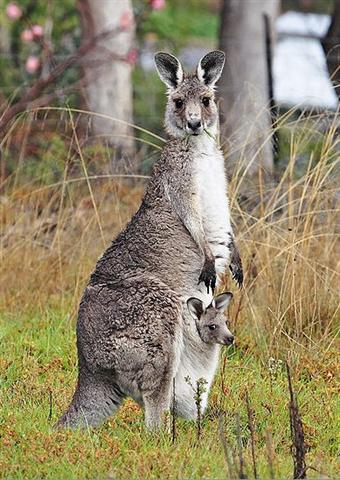 |
|
he oho.a Teke.anake ko toona titiro.he too mai |
Teke went with all his assistants. They took the
four-legged animals, male and female, fifty in all.
[25 + 25 = 50] |
|
i te manu vae ehā.
ko te tamaaroa ko te
tama- |
|
hahine.erima te kauatu
te manu vae eha. |
|
Matua. 1. Father (also matu'a tamâroa);
matu'a hâgai, adoptive father or mother;
matu'a ké, uncle, aunt, close relative. 2. Part
of a net from which the weaving started: te
matu'a o te kupega. Vanaga. 1. Chronic. Ta.:
matua, id. 2. A parent (metua); matua
tamaroa, father; matua tamaahine, mother;
matua too, adoptive father; matua kore,
orphan. P Pau.: makuahine, mother. Mgv.:
motua, father; matua, superintendent,
overseer. Mq.: matua, any man; motua,
father. Ta.: metua, metia, father,
mother, parent. Churchill. |
|
50 manu vae ehā. |
(There
were) fifty four-legged animals.
[50 * 4 = 200] |
|
he too mai anake te huru o te manu ko te tamaa(-) |
They took all kinds of birds
[anake te huru o te manu], male and female,
a hundred pigs (?), [50 + 50 = 100]500 chickens,
[250 + 250 = 500]
and five large calabashes (kaha) full of
flies. |
|
roa ko te tamahahine tokoa |
|
100 kekepu. |
|
500 he moa |
|
5 erima kaha
o te takaure. |
|
Crossed out:
5
takaure
manu tara. |
[Five sooty sea swallows, manu tara,
recreating the cycle of life, taka-ure.
→ 355 /
5 = 71.] |
|
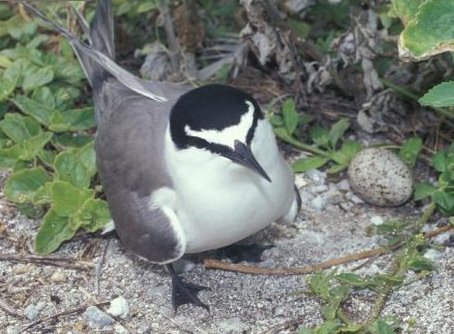 |
|
...
There is a couple residing in one place named Kui
[Tui] and Fakataka (Haka-taka).
After the couple stay together
for a while Fakataka is pregnant. So they go
away because they wish to go to another place - they
go. The canoe goes and goes, the wind roars, the sea
churns, the canoe sinks. Kui expires while
Fakataka swims.
Fakataka swims and
swims, reaching another land. She goes there and
stays on the upraised reef in the freshwater pools
on the reef, and there delivers her child, a boy
child ...
... And then
the bone spoke; it was there in the fork of the
tree: Why do you want a mere bone, a round thing in
the branches of a tree? said the head of One Hunaphu
when it spoke to the maiden. You don't want it, she
was told. I do want it, said the maiden. Very well.
Stretch out your right hand here, so I can see it,
said the bone. Yes, said the maiden. She stretched
out her right hand, up there in front of the bone.
And then the bone spit out its saliva, which landed
squarely in the hand of the maiden. And then she
looked in her hand, she inspected it right away, but
the bone's saliva wasn't in her hand. It is just a
sign I have given you, my saliva, my spittle. This,
my head, has nothing on it - just bone, nothing of
meat. It's just the same with the head of a great
lord: it's just the flesh that makes his face look
good. And when he dies, people get frightened by his
bones. After that, his son is like his saliva, his
spittle, in his being, whether it be the son of a
lord or the son of a craftsman, an orator. The
father does not disappear, but goes on being
fulfilled. Neither dimmed nor destroyed is the face
of a lord, a warrior, craftsman, an orator. Rather,
he will leave his daughters and sons. So it is that
I have done likewise through you. Now go up there on
the face of the earth; you will not die. Keep the
word. So be it, said the head of One and Seven
Hunaphu - they were of one mind when they did it ... |
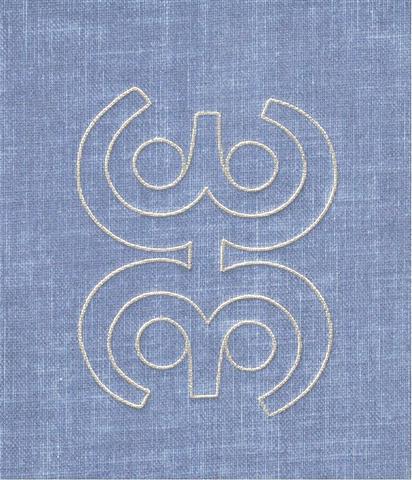
|